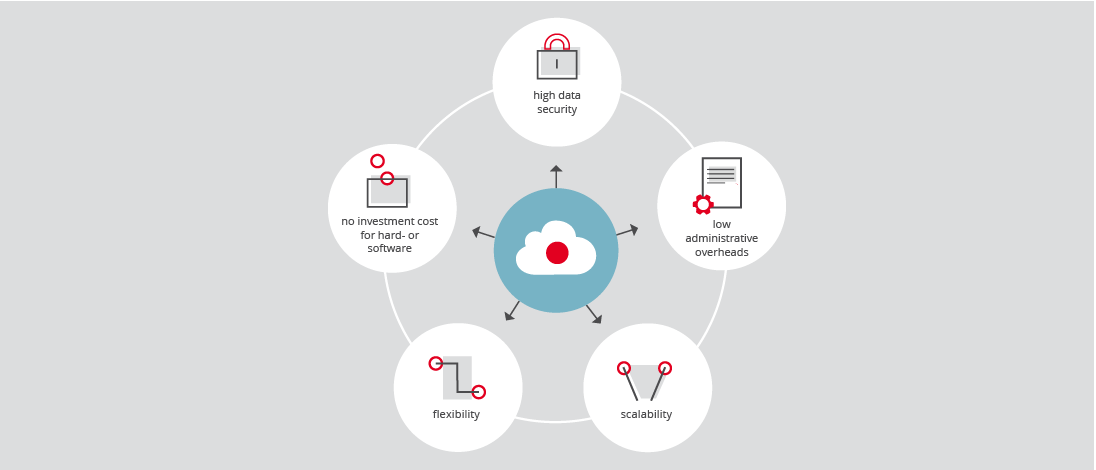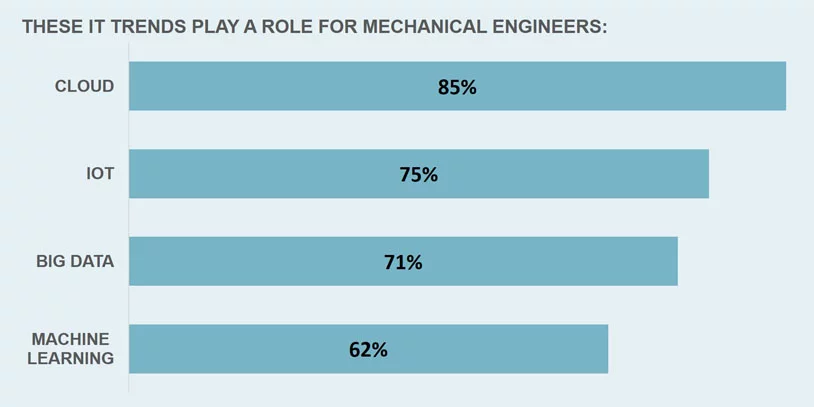camos CPQ in the Cloud: How sales profits
Cloud usage has surged in recent years. According to the current VDMA (German engineering association) IT report, 85% of mechanical and plant engineering companies use cloud solutions, which are thus more popular than IT trends such as IoT (75%), Big Data (71%) and Machine Learning (62%). Due to professional administration by providers, security issues in B2B cloud use are a thing of the past.
Sales particularly benefit from cloud solutions, since increased mobility is now a matter of course and is expected. As a CPQ provider, camos offers agile software for product configuration, price calculation and quotation generation. Sales representatives and dealers always have up-to-date information at their fingertips, wherever they may be. Even prospective customers have access to the digital sales system, and thus all the sales information, via the Internet: Thanks to a cloud solution, they can simply configure their own custom product and initiate the order process themselves.
The special feature of the camos CPQ in the Cloud is that the solution can also be used for customer-specific sales processes and to configure individualised products. Every company receives the solution tailored to their requirements and optimised IT infrastructure without sacrificing the advantages of the Cloud: Scalability, flexibility, low administrative overheads, no investment costs for hardware or software, high data security on European servers. camos CPQ in the Cloud is therefore ideally suited for the sale of complex B2B products. Convincing offers can be generated and approval workflows automated, even for non-standardised, customer-specific machines and systems (engineer-to-order).
Whitepaper CPQ in mechanical and plant engineering
This whitepaper summarizes the key functions and trends regarding Configure, Price, Quote (CPQ). It answers the following key questions that manufacturing companies need to know about complex and multi-variant products - especially in mechanical and plant engineering:
1. Why is CPQ becoming so important for sales?
2. Where is CPQ located in the digital process?
3. What are CPQ core functions?
4. On which foundation is CPQ based?
5. How does CPQ support the customer journey?
6. What is the benefit in sales?
7. What are concrete best-practice-examples?
All answers to these questions can be found in our white paper. This is particularly helpful if you want to find out about CPQ at an early stage and want to learn about the basics as well as the most important trends in the CPQ environment.
Cloud usage has surged in recent years. According to the current VDMA (German engineering association) IT report, 85% of mechanical and plant engineering companies use cloud solutions, which are thus more popular than IT trends such as IoT (75%), Big Data (71%) and Machine Learning (62%). Due to professional administration by providers, security issues in B2B cloud use are a thing of the past.
Sales particularly benefit from cloud solutions, since increased mobility is now a matter of course and is expected. As a CPQ provider, camos offers agile software for product configuration, price calculation and quotation generation. Sales representatives and dealers always have up-to-date information at their fingertips, wherever they may be. Even prospective customers have access to the digital sales system, and thus all the sales information, via the Internet: Thanks to a cloud solution, they can simply configure their own custom product and initiate the order process themselves.
The special feature of the camos CPQ in the Cloud is that the solution can also be used for customer-specific sales processes and to configure individualised products. Every company receives the solution tailored to their requirements and optimised IT infrastructure without sacrificing the advantages of the Cloud: Scalability, flexibility, low administrative overheads, no investment costs for hardware or software, high data security on European servers. camos CPQ in the Cloud is therefore ideally suited for the sale of complex B2B products. Convincing offers can be generated and approval workflows automated, even for non-standardised, customer-specific machines and systems (engineer-to-order).

